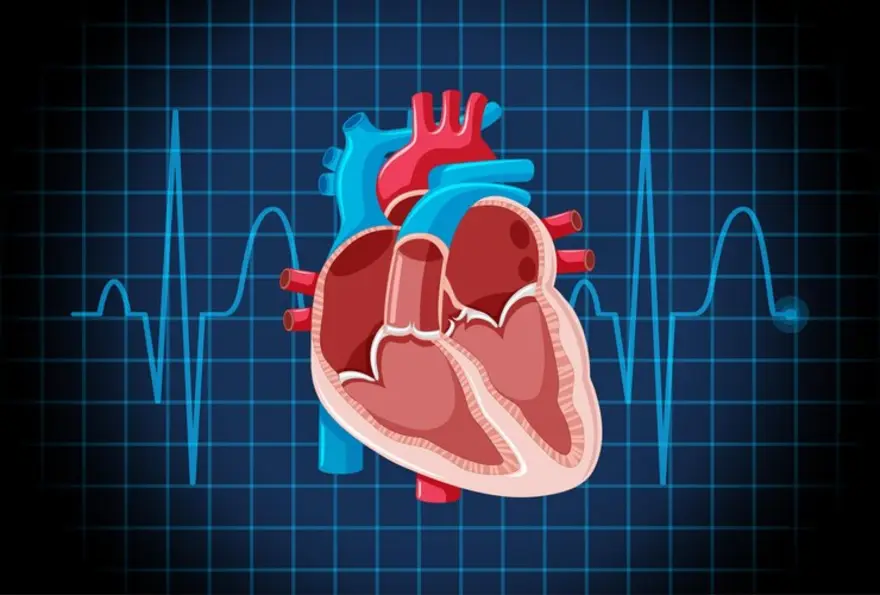Preventive Healthcare
Stress Test: Purpose, Procedure, Risks and Results
2912 Views
0

The heart is one of the most vital organs in the human body. It is responsible for pumping blood and oxygen to all the major organs and even the extremities. It is important to keep it in good condition. One of the best ways to check if your heart is working optimally is by undertaking a stress test. You must watch out for any signs that you may also need a stress test.
What is a Stress Test?
Stress tests are a type of diagnostic procedure used to evaluate the heart's response to physical stress. The test is also known as an exercise stress test or treadmill test. It is usually done to find out if you have any underlying heart conditions.
What is The Purpose of a Stress Test?
A stress test aims to help your doctor determine if you have coronary artery disease (CAD) or other similar diseases and how severe they are. It is a condition in which the arteries that supply blood to your heart muscle are narrowed or blocked. This can lead to chest pain (angina), shortness of breath, irregular heartbeat, and, if left untreated, even a heart attack. So these are signs that you need a stress test.
Who Needs a Stress Test?
The test is usually done on people with heart disease or with risk factors for heart disease, such as high blood pressure, high cholesterol, diabetes, or a family history of heart disease. The test may also be done on people with a history of heart attacks or other cardiovascular events.
However, it is not solely limited to patients with significant cardiovascular problems. Some people may need a stress test even though they don't have any outward symptoms of heart disease. This is because some heart conditions, such as coronary artery disease, can exist without causing symptoms. Therefore, a stress test can help identify these silent conditions.
It should ideally be taken by individuals planning on starting an exercise program to rule out any major risks. Lastly, it is an excellent diagnostic tool to check if the treatment for a given heart condition is progressing as planned.
How is a Stress Test Done?
A stress test usually involves walking on a treadmill or riding a stationary bike while hooked up to an electrocardiogram (EKG). The EKG machine monitors your heart's electrical activity during exercise.
Your doctor may also administer a medication called dobutamine during the test. Dobutamine is a drug that makes the heart beat faster and harder, simulating the same amount of stress on your heart as physical activity.
Types of Stress Tests
Several different types of stress tests can evaluate the health of your heart. They are as follows:
- Exercise stress test: The most common type of stress test is the exercise stress test, sometimes called a treadmill test or an exercise electrocardiogram. This test involves walking on a treadmill or riding a stationary bike while your heart rate and blood pressure are monitored. The test will be stopped if you have any symptoms during the test, such as chest pain or shortness of breath.
- Nuclear stress test: Nuclear stress tests use radioactive material to take pictures of your heart before and after exercise. The radioactive material used is relatively mild, and exposure to this material is safe for humans.
- Pharmacologic stress tests: These tests use medication to raise your heart rate instead of exercise. They are usually done if you cannot exercise because of another health condition.
Irrespective of the type of stress test you undertake, it is important to follow your doctor's instructions closely. Lastly, stop immediately if you feel any pain or discomfort in the region surrounding your heart.
What are The Risks of a Stress Test?
A stress test is generally considered safe, but as with any medical procedure, some risks are involved. These include:
- Chest pain or discomfort
- Shortness of breath
- Lightheadedness or dizziness
- Irregular heartbeat
- Exercise-induced asthma
- Muscle soreness
Fortunately, most of these risks and side effects are temporary and will subside once the test is done. However, do remember to inform your physician and stop the test immediately when you feel symptoms like chest pain, severe shortness of breath, or dizziness.
How to Prepare for a Stress Test?
There are a few protocols to consider before undertaking a stress test.
- Don’t consume food a few hours before the test.
- Avoid smoking and caffeine at least a day before the test.
- Stop heart medications on the day of the test after consulting your doctor.
- Wear light, breathable clothes for maximum comfort.
What Do The Results Mean?
The results of a stress test show how well your heart works during physical activity. It can also show if you have any blockages in your arteries. If your heart isn't getting enough oxygen during the test, it may mean you have coronary artery disease. Depending on the heart's health or the severity of the condition, your doctor will offer various solutions.
Conclusion
To sum it all up, a stress test is a diagnostic tool that can be used to evaluate how well your heart functions while under physical stress. The test involves exercising on a treadmill or stationary bike while hooked up to an electrocardiogram (ECG) machine. Lastly, stress tests are generally safe and have few risks, but they are not without potential complications.
If you are planning on taking a stress test or any other type of diagnostic test, reach out to us at Metropolis Health. A key player in medical diagnostics, our labs are spread out across several countries and continents. For more information on pricing and services, contact us today.
 Home Visit
Home Visit Upload
Upload














1701259759.webp)









 WhatsApp
WhatsApp